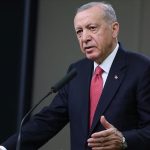Youssef Ghasemi, professor of Shahid Beheshti University and one of the pioneers in the field of technology law, in a comprehensive and scientific speech, examined the challenges of artificial intelligence development in Iran and the extensive impact of international sanctions on this industry. This speech, which was held among students and researchers, had a detailed look at the obstacles facing the country in using new technologies and artificial intelligence.
Pointing to the increasing importance of artificial intelligence in the world and its role in the fourth industrial revolution, he said: “Artificial intelligence is known as one of the most important technologies of the 21st century, which has created huge changes in various industries. “But unfortunately, Iran is facing serious obstacles in the way of developing this technology, a large part of which is due to international sanctions.”
sanctions; A big obstacle in the way of progress
In this speech, Dr. Ghasemi analyzed the negative effects of international sanctions and emphasized that the sanctions have not only deprived Iran of global scientific and technological resources, but have also made it very difficult to access advanced tools and technologies required for the development of artificial intelligence.
“Artificial intelligence requires massive data and high computing power,” he said. Despite the sanctions, Iran cannot easily access supercomputers, advanced servers, and data necessary for sophisticated analysis. This has caused the country to lag behind in the development of this technology.”
Ghasemi further pointed out the importance of access to international data-driven platforms as well as artificial intelligence software development tools and added: “Sanctions have limited the purchase and use of advanced software and hardware tools. Even domestic companies that have the ability to produce artificial intelligence products face many problems in their growth path due to the lack of access to international markets and global scientific and technological resources.
internal limitations; From the lack of infrastructure to the lack of sufficient support
In addition to pointing out the international obstacles, Dr. Ghasemi also examined the internal challenges and stated that the sanctions are only part of the problem and another part of the obstacles is related to internal weaknesses. Referring to the state of technical infrastructure in the country, he said: “Besides the sanctions, we are also facing challenges inside the country, such as the lack of necessary infrastructure for the development of artificial intelligence. “Our research centers and universities still do not have full access to the tools and facilities needed for research in the field of artificial intelligence.”
He also pointed to the lack of specialized personnel and said: “The development of artificial intelligence requires specialized and experienced personnel. In Iran, although progress has been made in the field of human resources training, the lack of specialists in this field is still strongly felt. “Many graduates of fields related to artificial intelligence either migrate abroad or work in unrelated fields due to the lack of suitable job opportunities.”
Another issue raised by Dr. Ghasemi was the lack of sufficient support for research projects in the field of artificial intelligence. He emphasized that for the development of this technology, there is a need for large investments and government support for researchers and startups. According to him: “Research and development in the field of artificial intelligence is expensive and requires financial and infrastructure support. “If we want to make progress in this field, we must provide adequate space and financial resources for research projects and innovative companies.”
international cooperation; A missed opportunity
In another part of his speech, Dr. Ghasemi mentioned the importance of international cooperation in the field of science and technology and stated that in today’s world, no country can progress alone in advanced fields such as artificial intelligence. He said: “One of the most important means of progress in the field of artificial intelligence is partnership and cooperation with other countries. But unfortunately, due to international sanctions and restrictions, Iran cannot fully participate in major global projects. This has caused us to lag behind many innovations and scientific advances in this field.
He continued: “In advanced countries, scientific and technological cooperation between universities, private companies and research centers is a common practice. But in Iran, due to existing restrictions, such cooperation is rarely formed, and this prevents us from the path of development.”
solutions; Optimum use of internal resources and focus on local innovation
Providing solutions to overcome these challenges, Dr. Ghasemi emphasized that despite all the limitations, Iran can progress in the field of artificial intelligence by optimally using domestic resources and focusing on indigenous innovations.
He said: “We cannot always look at sanctions and restrictions as a factor for the lack of progress. Although the sanctions have created many problems, we can still exploit our domestic capacities. For this purpose, we must focus on local innovations and training of specialized human resources.
Dr. Ghasemi also emphasized that the government and the private sector should support research and development projects in this field and added: “Investing in the field of artificial intelligence can not only help the scientific and technological growth of the country, but can also solve many problems. industrial and economic of the country also help. We must take a long-term view of this field and provide the ground for progress with cooperation and joint efforts.”
In the end, Dr. Ghasemi expressed hope for the future of artificial intelligence in Iran and said: “Despite all the limitations, I am optimistic about the future of artificial intelligence in Iran.” If we can use our internal resources in the best way with appropriate strategies and extensive cooperation between the government, academic and industrial sectors, there is no doubt that a bright future awaits this technology in the country.”
RCO NEWS















